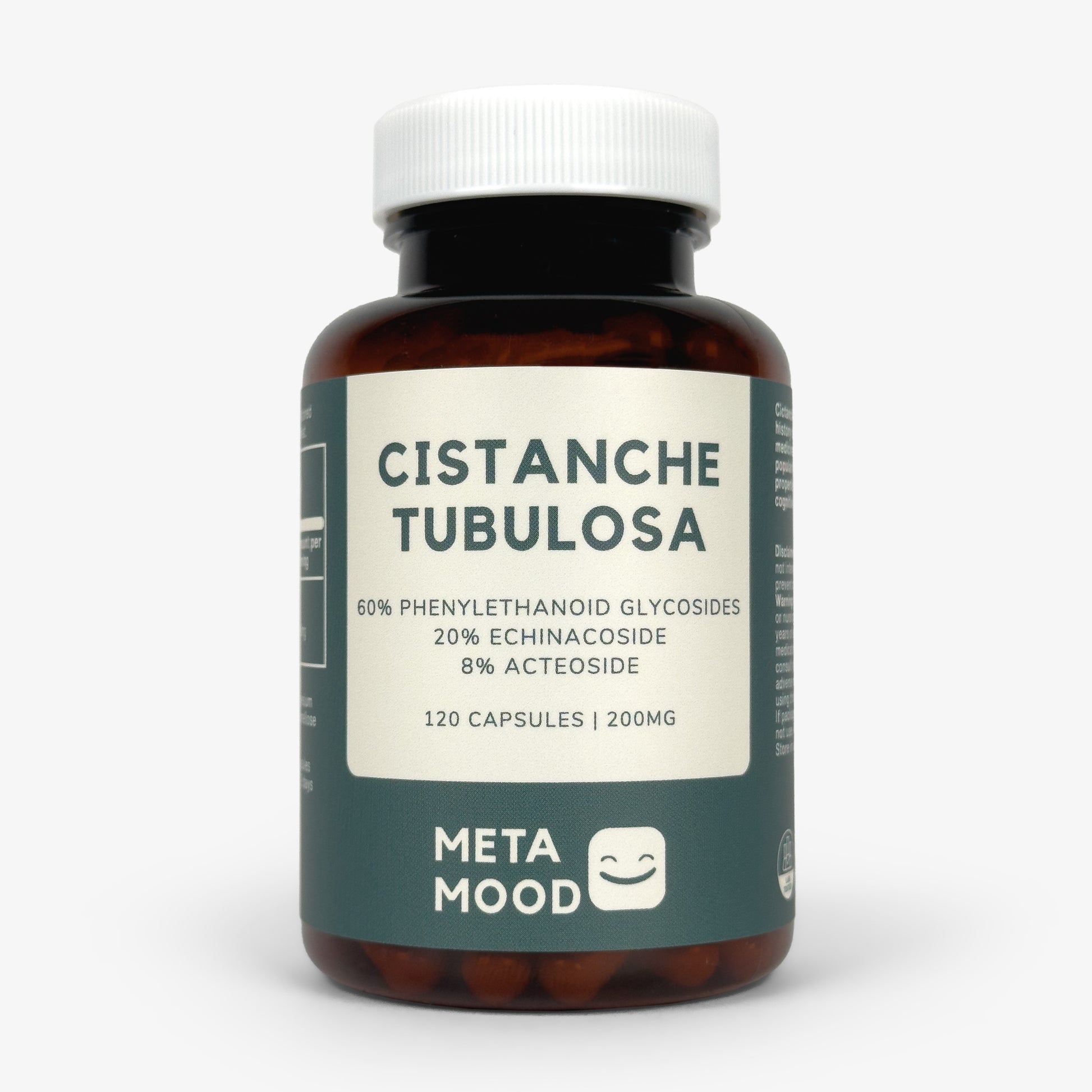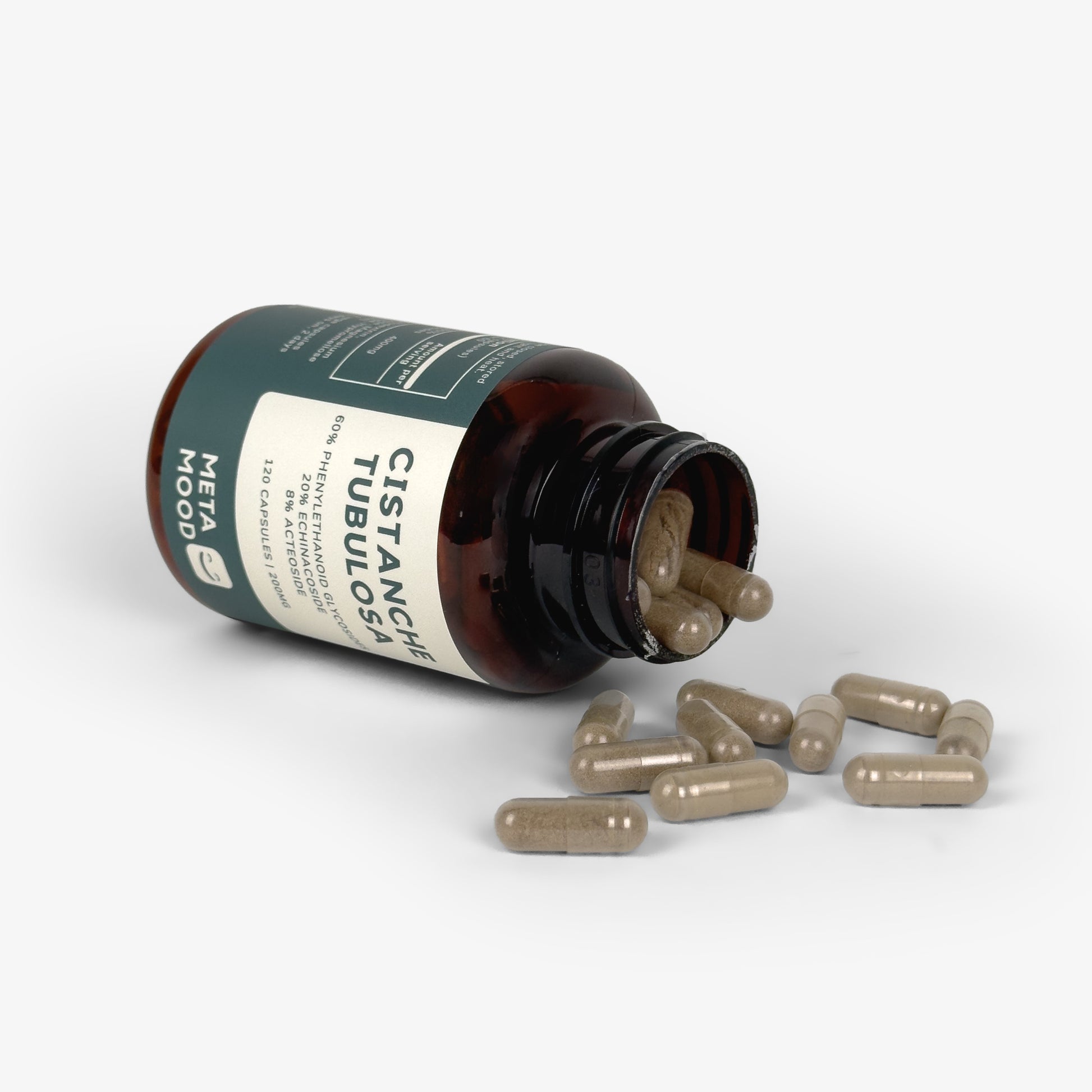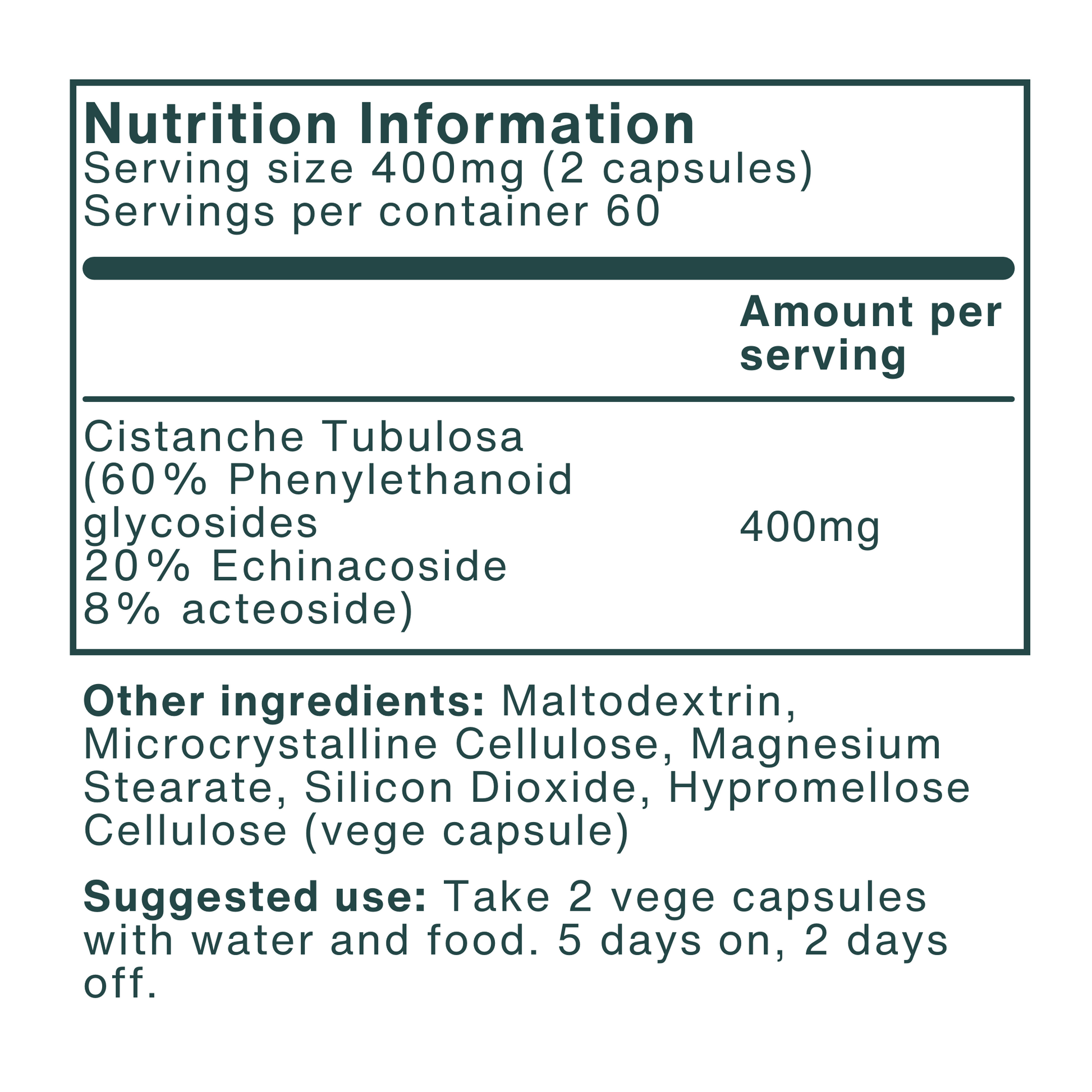MetaMood
Cistance Tubulosa 60% Phenylethanoid glycosides, 20% Echinacoside, 8% acteoside
Cistance Tubulosa 60% Phenylethanoid glycosides, 20% Echinacoside, 8% acteoside
400mg | 60 servings
15% off
No se pudo cargar la disponibilidad de retiro
- Lab tested
- Australian
- Free shipping for orders over $100
Cistanche Tubulosa, also known as desert ginseng, is a holoparasitic plant which completely lacks chlorophyll and survives by growing on and absorbing nutrients from a host plant. Cictanche Extract has a long history of use in traditional Chinese medicine and has recently gained popularity in the west for its beneficial properties to testosterone levels and cognitive function. Cistanche Tubulosa is an especially rich source of echinacosides and acteosides which both support both BDNF and healthy testosterone levels. Our Cistanche Extract is standardized to 60% Phenylethanoid glycosides, 20% Echinacoside, 8% acteoside.
Video testimonials
Video testimonials
Ingredients
Ingredients
Additional information
Additional information
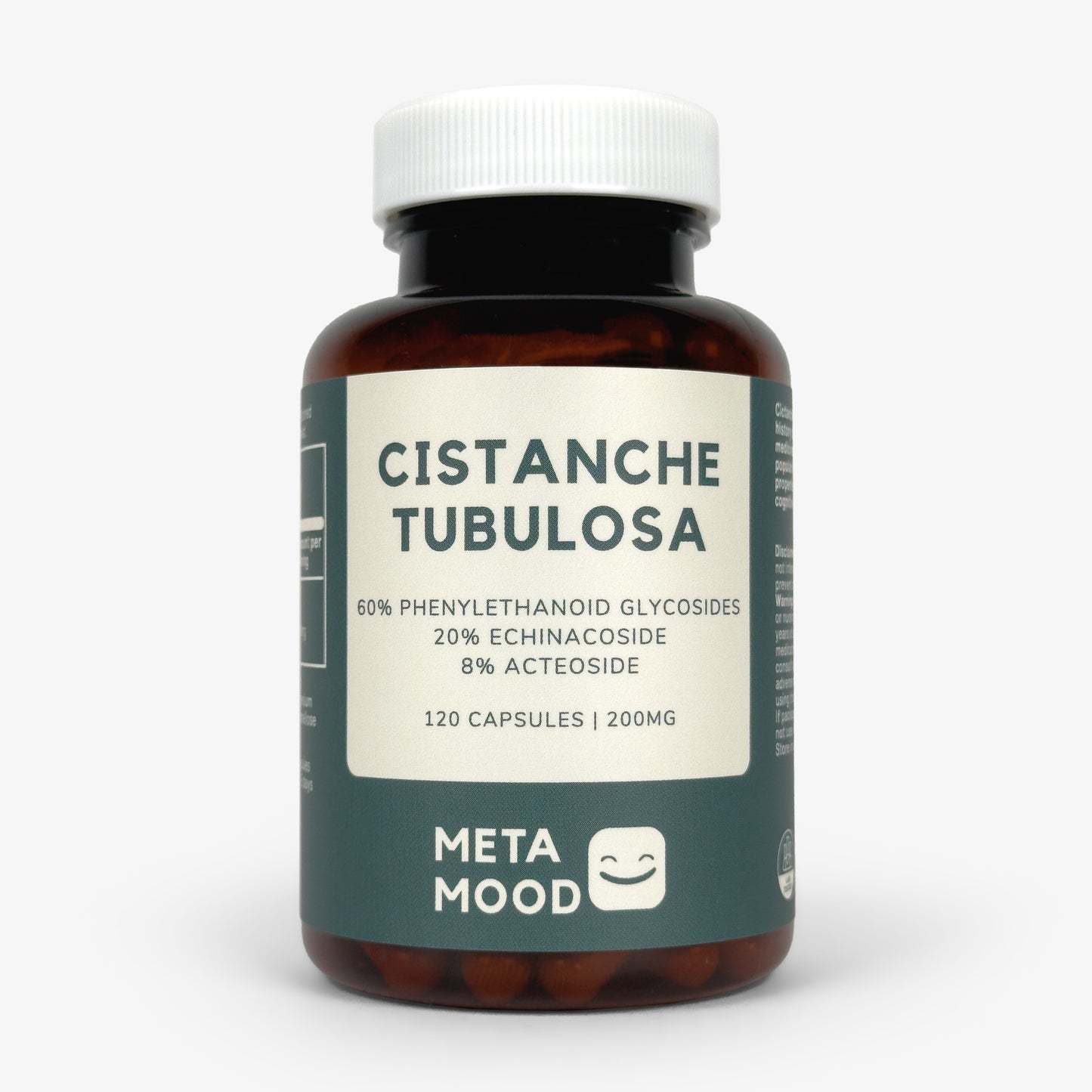
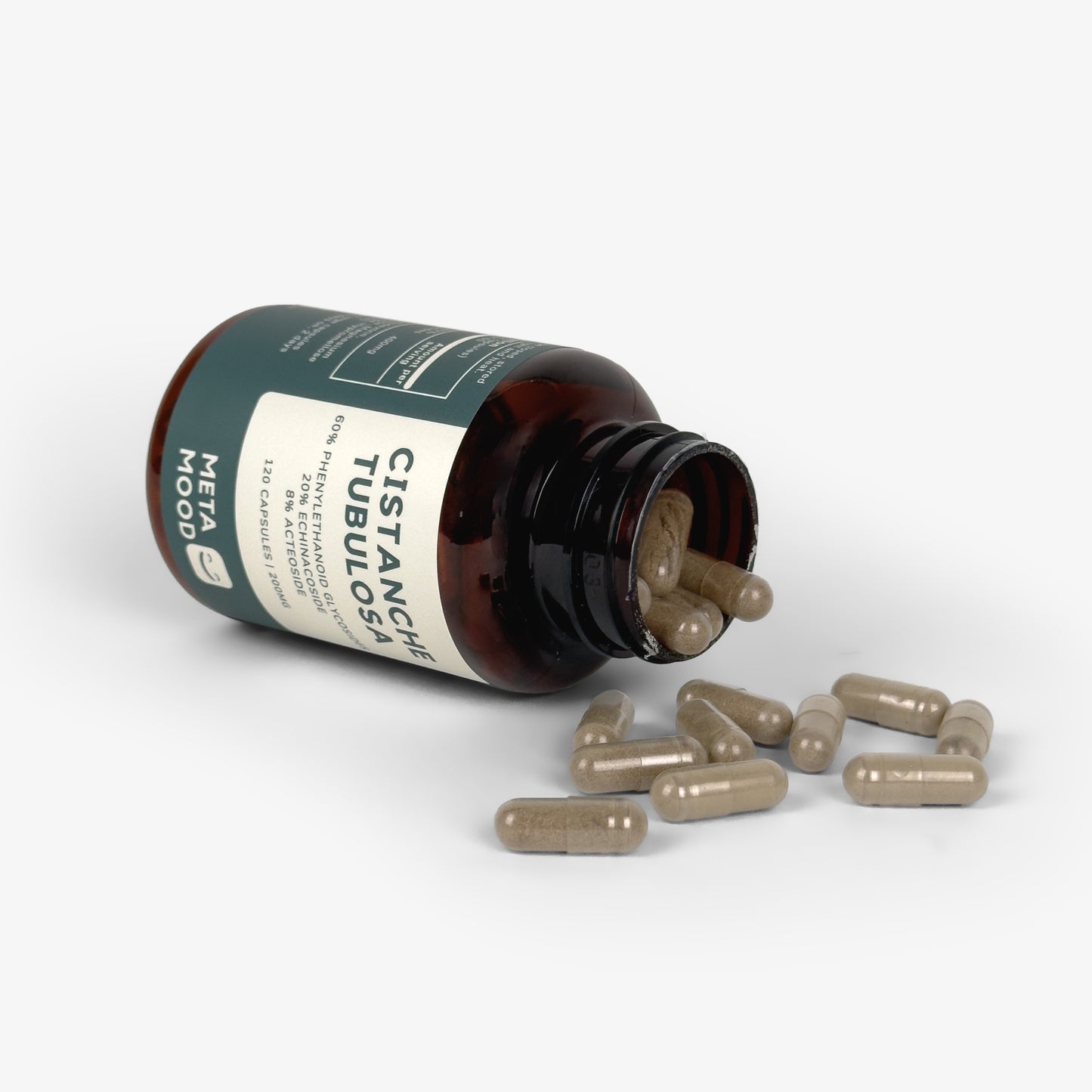
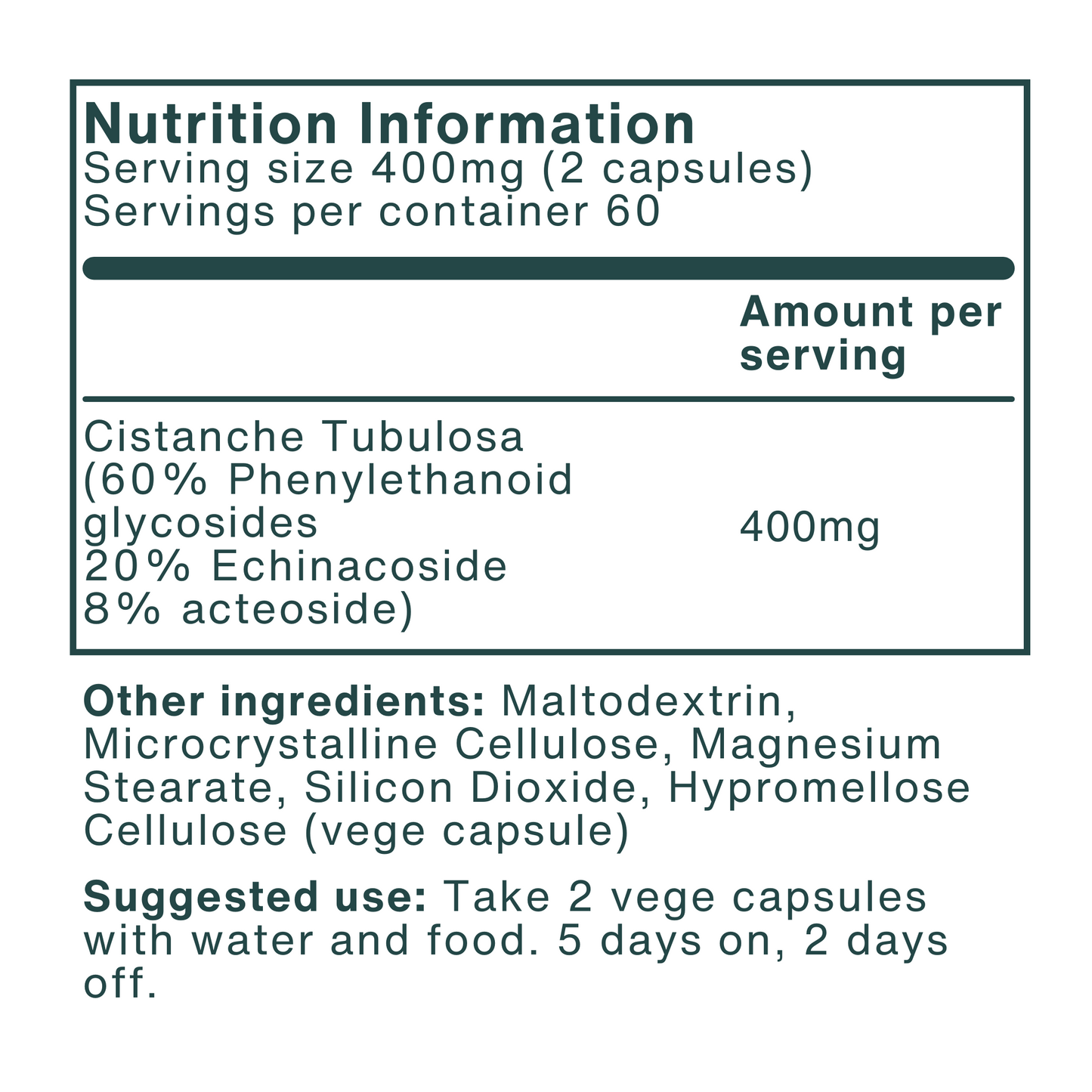

Cistanche Tubulosa standardised extract
Researchers have observed increased levels of testosterone in rats after Cistanche treatment. Researchers have also observed increased activation of enzymes that are involved in the synthesis of steroid hormones such as testosterone.
pubmed.ncbi.nlm.nih.gov/26004585/
pubmed.ncbi.nlm.nih.gov/31881320/

Health down low
Cistanche has also reversed testicular damage caused by BPA toxicity in rodents. BPA is a chemical that has been used to make many plastics such as food containers since the 1950s. Studies have indicated that BPA exposure may lead to inhibitory effects on testosterone synthesis.
pubmed.ncbi.nlm.nih.gov/27422164/

Hair loss & Dandruff
In a 2015 clinical study, Cistanche was linked to positive effects on male-pattern baldness, scalp dandruff, and scalp inflammation.
In particular, the study noted a notable improvement in both hair density and hair thickness following a 16-week regimen of Cistanche tubulosa and Laminaria japonica.
www.ncbi.nlm.nih.gov/pmc/articles/PMC4418416/

Mind health
Administration of Cistanche has shown improvement in various indicators of depression in rodents, such as reduced stress levels and increased dopamine, a neurotransmitter associated with motivation and pleasure.
A rodent study in 2017 revealed that Cistanche reduced the activity of monoamine oxidase, an enzyme that breaks down dopamine and serotonin. Drugs that inhibit monoamine oxidase are commonly used for treating depression.
Additionally, studies have demonstrated that Cistanche has protective properties against neurodegenerative diseases like Alzheimer's and Parkinson's in rodent models.
www.ncbi.nlm.nih.gov/pmc/articles/PMC5506466/

